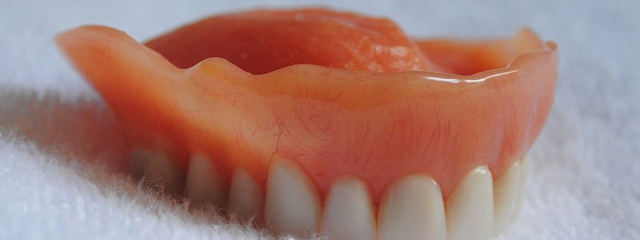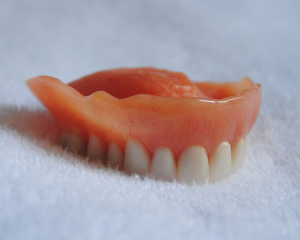Dentistry has come a long way since George Washington was fitted with wooden dentures. Today’s “false teeth” look more natural and function better than ever before. Still, you may be understandably hesitant to have your natural teeth extracted and have them replaced with dentures. Here are some things you should know about dentures and why they might or might not be right for you.
Why Dentures?
If your natural teeth are decayed or broken to the point that they’re no longer functional, you have pain, or you are very unhappy with the way they look, full or partial dentures can give you the functionality you need without the high price tag of dental implants.
Types of Dentures
If all of your teeth on the top or bottom of your jaw have been extracted, you’ll be fitted for a full denture. These adhere to your gums with adhesive in most cases. Sometimes, anchors can be screwed into your jawbone and the denture plate can be snapped into them. This is something your dentist will talk to you more about.
If you still have several teeth on your dental arch, you may be a candidate for partial dentures. These have spaces in them to accommodate the teeth that you still have, and the denture will snap into place over those teeth. This gives you the advantage of more stability and better function when it comes to chewing than you would have with full dentures that are not snapped into place.
It’s always better to keep whatever natural teeth you can, because this will allow for less bone loss than you would have if you were to have all of your teeth extracted. Sometimes, however, this is simply not feasible.
Dental Implants
Dental implants are the most expensive option when it comes to replacing lost teeth. They can be the best option for someone who has lost only a few teeth or who still has strong, dense bone in the jaw. In some cases, dental implants might be combined with dentures.
Bridges
If you are missing only one or two adjacent teeth, a bridge might be an option worth considering. You need to have one or more teeth on either side of the bridge in most cases, and those teeth are normally treated with crowns that support the bridge.
Your dentist will be the one to talk to about all of your options when it comes to replacing lost teeth. He or she can help you decide which type of replacement would be best in your case and can also walk you through figuring out your insurance benefits.
Call our office to make an appointment for a consultation if you are ready to look into your options for replacing teeth that have been lost or extracted.













